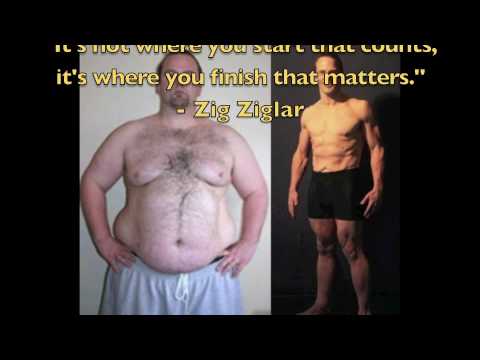How to Accelerate Weight Loss Naturally
It can be very difficult for someone to be patient over a long period of time when they want to lose weight. Most dieters want to see results fast. With each weigh-in, you want to see a lower number on the scale or you want to see differences in how your clothes fit. Some diets or weight loss products advertise quick and easy weight loss. However, they may contain unsafe medications or promote unsafe eating patterns which can be dangerous to your health.[1] Instead, with a few changes to your diet, exercise routine, and lifestyle you can help speed up your weight loss naturally and safely, which can help you reach your goal sooner.
Steps
Part 1 Using Exercise to Accelerate Weight Loss
-
1
Combine aerobic exercise and strength training. A combination of a variety of exercises can help to speed up weight loss. Both cardio and strength training provide you with different types and amounts of calories burned.[2] Remember that to lose weight, you need to burn fat and build muscle
- Aerobic exercise is primarily used to raise heart rate and burn calories immediately. Types of aerobic exercise include: running, walking, swimming, and biking.
- Strength training helps boost the metabolism because when muscles contract, they burn much more energy than when they are at rest. In addition, strength training helps increase muscle mass, which helps support a faster metabolic rate. The more muscle mass you have, the more calories you can burn, even when you are at rest.[3]
- Types of strength training include: weight lifting, yoga or pilates.
-
2
Include interval training. Interval training, which involves both high-intensity and moderate intensity levels, may significantly boost your metabolic rate.[4]
- Aerobic exercise requires you to use more oxygen during your workout, which prompts the metabolism to work at peak efficiency — even after the workout is over (up to 24 hours later).[5]
- Interval training involves short bursts of very high intensity exercises with short bursts of moderate intensity exercises. It's done for a shorter length of time compared to a steady state cardio vascular exercise.[6]
-
3
Increase lifestyle activities. Another easy way to burn more calories throughout the day is increasing your daily lifestyle activities. These are things you do in your typical day already — like walking to and from your car or doing yard work.[7]
- Increasing your daily lifestyle activity is a simple and quick way to increase your total calories burned each day. Think about your entire day and find areas where you can move more or take more steps.
- Activity that you have throughout your day can be just as important as planned exercise, as it adds to you overall calorie expenditure.
- Try: parking father away, walking to your destination whenever it's safe and feasible, always volunteering to walk the dog, or taking the stairs more often.
-
4
Alternate workouts regularly. Your body adapts to your fitness routine over time, whether you run at the same pace or lift the same amount of weight each session. This makes your workouts less effective over time. New exercise routines continue to challenge different muscles, ensuring the metabolic rate remains high throughout your weight loss efforts.[8]
- You can also do different types of activity within one workout session. For example, you might spend 20 minutes on the treadmill and then follow that by a 45 minute water aerobics class.
- You do not necessarily need to do a different type of exercise every single day. However, over a few weeks, it's important to mix up your routine.
- Alternating your workouts not only helps weight loss, but also can help prevent boredom with your exercise routine. If you get bored with your workouts you're more likely to give them up.[9]
Part 2 Eating for Accelerated Weight Loss
-
1
Eat more protein. A higher protein diet helps support and promote weight loss. Studies have also shown that this type of diet or eating pattern may also help accelerate weight loss naturally.[10] If you want to lose weight that is actually body fat (and not muscle), you need to maintain your muscle by eating adequate protein.
- Lean protein at every meal helps you feel full longer since it takes longer to digest compared to carbohydrates or fats.[11] This may cause you to consume fewer calories throughout the day. Good sources of lean protein include dairy products, seafood, eggs, legumes, lean beef and tofu.
- Protein also acts to increase thermogenesis (the amount of calories your body burns digesting foods). A higher protein diet may lead to more calories burned naturally.[12]
-
2
Make half of your meals a fruit or vegetable. Fruits and vegetables, which are high in fiber and water content, make you feel full longer with minimal caloric intake. These foods are also rich in nutrients that are needed for a well-balanced, healthy diet.
- Include a wide variety of fruits and vegetables each week. Having a varied diet helps you consume adequate nutrients from foods.
- Aim for two to three servings of fruit daily (about 1/2 cup or 1 small piece equals one serving) and four to six servings of vegetables daily (1 cup or 2 cups leafy greens equals one serving).[13][14]
-
3
Limit the grain food group. Foods like bread, rice, and pasta are high in carbohydrates. While they can be part of a healthy and balanced diet, studies have shown that decreasing your total intake may help you lose weight faster.[15]
- One serving of grains is 1 ounce or 1/2 cup. Keep your total intake between one to two servings daily.
- If choosing to consume a grain-based food, aim to choose 100% whole grains which are higher in fiber and other nutrients.[16]
- Your body needs carbohydrates to function and operate normally. Plan to consume your carbohydrates from other foods such as fruit, low-fat dairy and starchy vegetables. These foods do contain carbs, but offer a variety of other nutrients like protein, vitamins and minerals.
-
4
Make the majority of your meals protein, fruits, and vegetables only. Focusing on these food groups will help support accelerated weight loss.[17]
- Following this eating pattern may help increase your body's metabolism and how many calories it burns as it digests foods.[18]
- Examples of meals and snacks include: greek yogurt with fruit and nuts; a spinach salad with raw vegetables, berries and grilled chicken; a tofu and vegetable stir fry; beef and bean chili with vegetables; or two ham and cheese roll ups with baby carrots.
-
5
Avoid dietary supplements or products promising increased metabolism. Many weight loss products promote fast weight loss or large amounts of weight loss in a short amount of time. Generally, this is all hype and these products will not increase metabolism or the speed of your weight loss.[19]
- Any supplements promising weight loss that seems "too good to be true" should be avoided.
- Claims such as "lose ten pounds in one week" or claims saying you don't have to change your lifestyle are generally not effective for weight loss.
Part 3 Maintaining Weight Loss
-
1
Keep track of your weight. Scheduling regular weigh-ins while you're trying to lose weight can help you stay on track and keep the weight off long-term.[20]
- Weigh yourself about one two times weekly. This will help provide an accurate trend of how your weight is fluctuating over time.
- Try to weigh yourself at the same time of day and in the same clothing (or with no clothing). This will help control any normal weight fluctuations.
-
2
Talk to your doctor. Talking to your doctor prior to starting any weight loss program or changing your diet or exercise routine is important. They will be able to tell you whether your goals are safe and appropriate for you.
- You may also want to consider asking your doctor about a referral to a local dietitian. These nutrition experts can help provide guidance and meal plans for natural weight loss.
- If you notice that you are not losing weight or having difficulty losing weight, tell your doctor. It's rare, but some health conditions make it difficult to lose weight and should be addressed by a physician.[21]
-
3
Sleep seven to nine hours nightly. Sleeping the recommended amount of time and sleeping well is important to overall health. Some studies have shown that inadequate sleep leads to dysregulation of metabolism and can cause weight gain or difficulty losing weight.[22]
- Consider when you typically wake up and decide what time is most appropriate for you to go to bed at night so you get seven to nine hours.
- Also, to get a restful sleep, turn off all lights, devices that make sound and electronics. This will help you get to sleep faster and sleep more soundly.
-
4
Build a support group. Studies have shown that support groups may help you lose weight and maintain your weight loss long-term.[23] Finding a support group is a good idea when you're trying to lose weight.
- An easy support group to start with is family, friends or co-workers. If you feel comfortable, talk to them about your weight loss goals.
- You can also find online support groups and forums with others that are also trying to lose weight. This might be a great place, not only for support, but ideas for recipes or other lifestyle changes to help support weight loss.
-
Healthy Ways To Lose Weight
Looking for guidance as you take steps to lose weight? This may be th
-
Basic Weight loss & Diet Tips (61 to 70)
61. Select an exercise pattern to suit y
-
How to Lose Weight When You Are 60 Years Old
Losing weight at any age is difficult, but as your body changes with
-
Top 10 Holiday Weight Loss Tips
The days of festivities, joy, pleasure and plenty of eating and drink
-
15 Foods Nutritionists Eat Every Day
Yes, variety is the spice of life—and one of the keys to a balan
-
Weight Loss tip #106 — Eat in smaller plates
- DON'T MISS
- You Can Lose Weight With These Beneficial Tips!
- Weight Loss Tip #83- Lose weight after delivery and tone your body
- The Resolution Solution: 7 Goals You Can Meet This Year
- What is Metabolism?
- How To Help Your Weight Loss In Seconds
- 6 Reasons You Havent Been Able To Get Rid Of Your Belly Fat
- Weight Loss Tip #150 – Write down a daily weight loss goal
- 5 Things Losing Weight Will Never Fix
- How to Lose Weight and Stay Healthy With a Disability
- Simple Actions On Exactly how To Shed Some Weight




